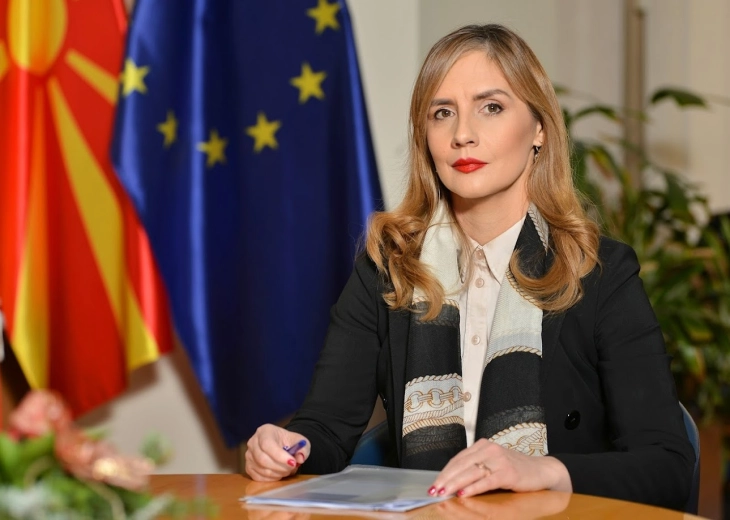National Bank files application for SEPA membership
- The National Bank has sent an application for the country to join the Single Euro Payments Area (SEPA), considered a key step toward further development and integration of the national financial system into the European economic space.

Skopje, 11 July 2024 (MIA) – The National Bank has sent an application for the country to join the Single Euro Payments Area (SEPA), considered a key step toward further development and integration of the national financial system into the European economic space.
National Bank Governor Anita Angelovska – Bezhoska, who signed the document, has said that the advantages of joining SEPA are very important for the citizens and the companies since most of the payments abroad are done in euros.
According to her, 87% of the total outgoing payments and 77% of total incoming payments through domestic banks were conducted in euros.
“For citizens and businesses, joining SEPA will primarily mean a cheaper, faster, safer, simpler and more efficient way (just like national payments) for cashless euro payments to SEPA member countries. A key benefit is the expected significant reduction in costs for cross-border transactions with these countries, which is especially important for remittances from expatriates and temporary workers abroad, as they are crucial for the Macedonian economy. The standardized regulations applied in SEPA also contribute to higher levels of consumer protection and transparency, ensuring equal access to all payment service providers at competitive prices,” Angelovska-Bezhoska told MIA.
With the country's accession to SEPA, citizens and businesses will benefit from lower costs for cross-border transactions, which can be completed within one business day, and with instant payments, funds will be transferred in no more than 10 seconds at any time of the day, including weekends and holidays.
By joining SEPA, domestic banks will become direct participants in the payment systems that operate within SEPA, which means that the complex correspondent arrangements currently employed by banks will be eliminated, resulting in cheaper and faster fund transfers. Currently, banks maintain so-called correspondent accounts with foreign banks where they keep liquid funds. When a client wants to make a transfer to a recipient abroad, the transfer is made from these accounts if the recipient has an account with that foreign bank. However, it is often the case that recipients have accounts with a different bank than the correspondent one, which means that the correspondent bank uses its correspondent relationships with other banks to transfer the funds to the final recipient.
The application for joining SEPA is the result of years-long activities and inter-institutional cooperation in the country and of the support from international institutions, the central bank governor told MIA.
The country’s SEPA accession activities began in 2021 under the Western Balkans Payments Modernization project, which is based on the Berlin Process initiative. The project aims to advance financial and economic relations among Western Balkans countries and to support the region’s integration into the European Union.
Since its launch in 2008, the SEPA network covers a total of 36 European countries and states, including all 27 EU member states, non-EU countries such as Switzerland, the United Kingdom, Andorra, San Marino, Vatican City, Monaco, and the three EEA (European Economic Area) countries.
Photo: National Bank







